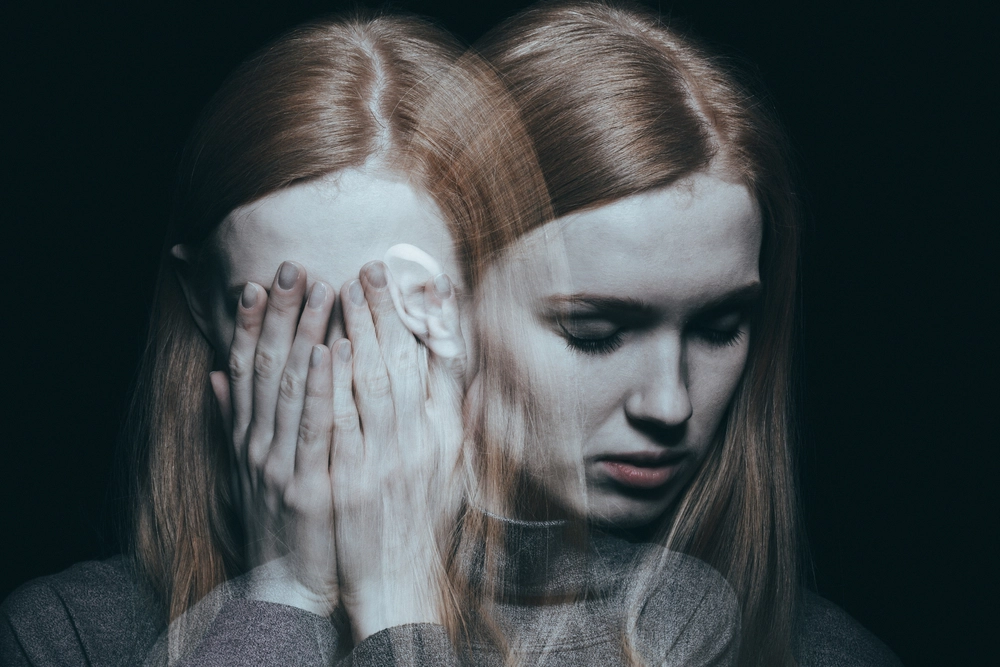Bipolar Disorder And Addiction

Bipolar disorder is a mental health condition that impacts a person’s activity, moods and energy levels. Sometimes it is known as manic-depressive disorder. About 2.6 percent of adults in the United States suffer from bipolar disorder, according to the National Institute of Mental Health.
Those who suffer from bipolar disorder have dramatic shifts in mood with periods of major depression interspersed with periods of mania. These periods may last days or months before they shift. In a patient who suffers with bipolar disorder, these episodes are a significant change from the person’s normal behavior patterns, and they are chronic. Bipolar disorder can make relationships, school and jobs very difficult for those who are afflicted with it.
Bipolar Disorder Types
There are three main types of bipolar disorder, according to the Diagnostic and Statistical Manual of Mental Disorders. Included in these is bipolar I, bipolar II and cyclothymic disorder.
Patients who suffer with bipolar I disorder will suffer episodes of severe mania – periods of elevated moods, high energy and/or irritability – that last at least seven days. These episodes often require hospitalization. These episodes may also include psychotic breaks. Episodes of severe depression will follow this mania, lasting at least two weeks.
Patients who suffer with bipolar II disorder spend more time being depressed than in manic episodes. They will experience major depressive episodes that involve fatigue, extreme sadness and/or suicidal ideation. These patients also have episodes of hypomania. This is a less severe form of mania, and it includes excitement, euphoria and/or irritability.
Cyclothymic disorder is the third type of bipolar disorder, and it’s generally considered to be a milder form than the other types of bipolar disorder. In patients that have cyclothymic disorder, episodes of hypomania and mild depressive episodes present in a pervasive and chronic pattern.
Bipolar Symptoms
Every type of bipolar disorder will present with major mood swings and include depression and mania or hypomania. Everyone experiences the ups and downs of life, but these episodes are more severe.
Manic episodes are characterized by:
- Euphoria
- Hyperactivity
- Racing thoughts/speech patterns
- Since of invincibility
- Trouble sleeping
- Risky behavior and impulsivity
- Substance abuse
- Poor decision making
- Easily distracted
- Irritability
Depressive episodes are characterized by:
- Hopelessness
- Extreme sadness
- Depressed appetite and weight loss
- Lack of energy and fatigue
- Lack of interest in previously enjoyed activities
- Suicidal thoughts and/or behaviors
Causes of Bipolar Disorder
The fields of science and medicine continue to learn more and more about bipolar disorder. Many scientists think that bipolar disorder might be a brain disorder with smaller or underdeveloped sections of the prefrontal cortex. This is the part of the brain that is responsible for decision making and problem solving. In these patients, the neurotransmitters – the brain’s chemical messengers – are also thought to not function well.
Bipolar disorder symptoms typically manifest in adolescence or early adulthood. It may also be a genetic disorder. Some physicians and scientists believe that environment plays a part in bipolar disorder. Most healthcare professionals agree that there isn’t one singular cause for bipolar disorder.
Bipolar Disorder Treatment
Bipolar disorder can be managed if it is properly treated, and patients who suffer from bipolar disorder can lead healthy and happy lives. Medication is necessary for many individuals. Bipolar disorder is treated with medications like mood stabilizers and antidepressants. Evidence-based care is also a common treatment. This is a combination of individual and group therapy, which helps to teach patients coping mechanisms and other life skills.
A structured routine and healthy lifestyle can be beneficial as well. Often, bipolar patients are very sensitive to change so a routine with regular sleep, a nutritional diet and regular exercise can be helpful when it comes to treatment for bipolar.
Bipolar Disorder and Substance Abuse
Often, bipolar disorder and substance use disorder go hand-in-hand. It’s important if a patient suffers from both disorders that he or she pursue treatment for both co-occurring disorders.
The Recovery Village Ridgefield is a state-of-the-art facility located in the Cascade Mountains, a half hour from Vancouver, Washington and also Portland, Oregon that offers both inpatient and outpatient treatment programs. The addiction specialists and healthcare professionals on staff here are qualified to treat patients with a duel diagnosis. If you are suffering from substance use disorder and/or bipolar disorder, it’s imperative that you seek treatment as soon as possible. Give us a call today.
Sources
https://www.journalbipolardisorders.com/content/1/1/14
View Sources
https://www.journalbipolardisorders.com/content/1/1/14




